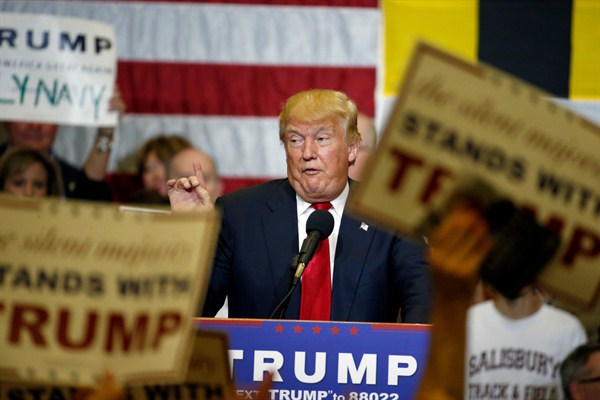Despite intense efforts by the Republican establishment to stop Donald Trump from winning that party’s presidential nomination, there is a good chance that he’ll pull it off. Current polling data suggests that if he faces Democratic frontrunner and likely nominee Hillary Clinton in the November election it will be a landslide victory for the Democrats. But strange things can happen in open political systems. While a Trump presidency may be unlikely, it would have far-ranging repercussions, particularly for U.S. defense policy and the American military.
While that much is clear, Trump is harder to gauge than any recent presidential candidate. He has no political track record to suggest what he might do as president. Nor has he articulated anything close to a coherent vision for American security. His foreign and security policy advisers are not major players, so they offer few hints of the direction a Trump administration might take. While Trump did offer what he called foreign policy principles in his book “Time to Get Tough,” they were more along the lines of slogans than actionable proposals.
The only concrete indications of what Trump would do as president in the defense realm come from his campaign speeches, interviews and debates. As in his book, these are expressed as general themes rather than detailed policies. One such theme is that the U.S. military is weak, or “severely depleted” as Trump put it, and must be rebuilt. While facts contradict this assessment, Trump, were he to become president, would almost certainly increase defense spending, although how he would do that remains open to speculation.

